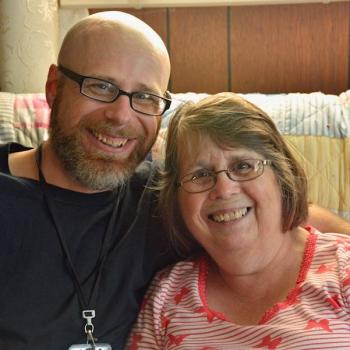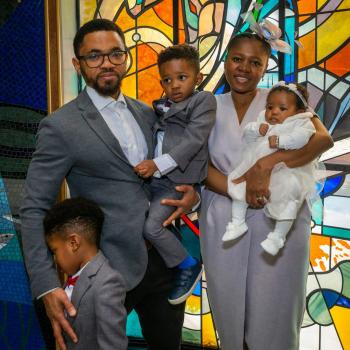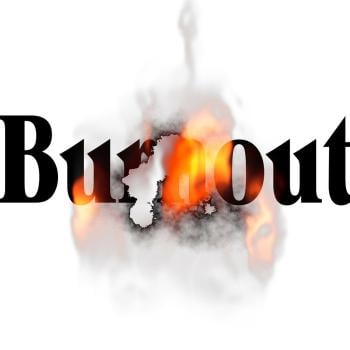It's such an ancient thing to do, and yet you connected it to modern life.
Sheen: You don't have to go to Jerusalem or Mecca or Santiago to go on pilgrimage; you go in your own heart. But it is more conducive to get you out of your normal, everyday life, because you're forced to deal with something new and you have to deal with something new within yourself. So pilgrimage is about a person preparing and packing all their stuff and carrying it. What invariably happens is they begin to discard stuff because they've over-packed. And they can't give it away to other pilgrims because they're doing exactly the same thing. In the refugios along the way, you see the libraries in all languages, things people have left, you see things books, clothes, shoes everything. And that happens.
Sheen: And then the second stage of the pilgrimage begins, the transcendence, the inner journey, where you begin to let go of your own negativity and darkness and you come to grips with this one you have not made peace with, you let them out of the cell of your heart, and this one out of the dungeon that wronged you as a young person and you can't forgive and they need to be punished more—no, no, it's time to let them go. You begin to let go of judgments and envies, anger and resentment and all the negativity that keeps us from being human, keeps us from being free and knowing ourselves. That's the real pilgrimage. That's what lasts. That's the transformation that's happening. You have to do this yourself. Nobody can carry your load. Nobody can walk in your shoes. You're on your own. You have to do it yourself. But you cannot do it without community. That's pilgrimage.
Estevez: (teasing) Period.
Sheen: There's a period. Sorry. They say I'm a windbag and I'm not going to say if it's true.
Estevez: We're trying to get him to use periods instead of commas.
Sheen: Did I say, "It's an effort to unite the will of the spirit with the work of the flesh?"
Estevez: (laughing) Not yet.
Sheen: That's pilgrimage.
Alexanian: It's a timeless backdrop, this camino, but it's a modern experience too. You have people who have just lost their job or they've separated from a spouse. And they're taking this walk to "reset," as we would say today, but clearly they've been doing it for a thousand years. What I think is unique is we have all these devices to keep us connected, but in truth we've never been so disconnected. And I think we more than ever need to shed those things and spend time on some sort of pilgrimage whether as you say it's in your heart or simplifying your day here. But they've been doing this sort of things for over 900 years for a reason. We as human beings over time have become too wound up and we need to become unwound.
You've talked a lot about the role of the pilgrim. What's the role of God in the pilgrimage?
Sheen: Well we don't have much without God. God comes in so many different forms. It's the genius of God to choose indwelling where we least likely look. Inside of us. God converts us. We don't convert to God. We awaken and go "I found God" or "I'm converted," but God was there before we were born. God was there when He formed the earth. Our ways are not Yahweh's ways. The God of scripture. Whether you put the name on it specifically, God, the One, the Other, the cosmos, the universe, whatever it is...the mystery.
This movie was about an intensely religious subject. But you have this line "Religion has nothing to do with it."
Estevez: Well, I tried to find that balance. This scene with his [Tom's] parish priest in the beginning, "Would you like to pray with me?" and he says "What for?" That would never happen in this man's [Sheen's] life, it had to happen in Tom's life. There had to be a place of hopelessness for him for conversion to happen. I think the film, the story, the script, the character for him [for Sheen] is the closest he's ever been able to play to who he is as a man, as an actor, as a human being.
Sheen: Absolutely. Very true.
Estevez: He's not an army assassin, or a cold blooded killer. He's not...
President...
Estevez: President, although he likes to think he is.
Estevez: I'm a work of progress in terms of my faith. My mother likes to say that. She was raised Southern Baptist, but left the church. He [Sheen] was raised devout Catholic and through their union, he left the church. So, I've heard a lot of arguments about religion, but they never talk spirituality. And yet, my mother is one of the most spiritual people I know.
Sheen: She's the only truly honest person. She loves the truth, the whole truth, all the time.




